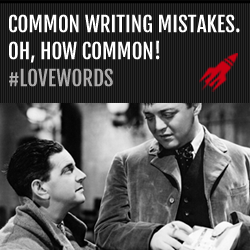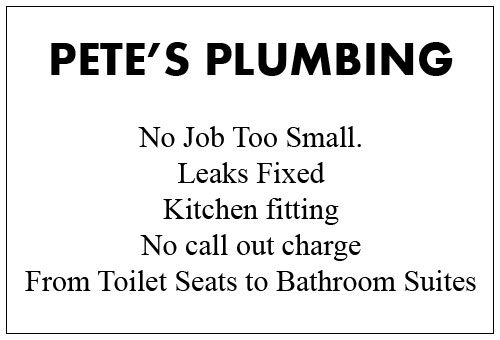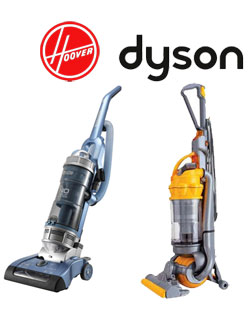 The great thing about writing is that you can play with language, syntax, tone of voice etc – but there are rules to follow in terms of spelling, punctuation, readability, fact checking.
The great thing about writing is that you can play with language, syntax, tone of voice etc – but there are rules to follow in terms of spelling, punctuation, readability, fact checking.
The most important thing about writing, aside from accuracy, is that it should communicate your message well.
Here’s my guide to some of the most common mistakes that writers make – in articles, sales proposals or on Facebook (where grammar is a law unto itself).
Feel free to pile in and point out what you think is wrong with this article. Is there anything I could of included that I didn’t?
Stop Capitalising Every Word In A Sentence
Don’t be fooled. That headline is ALL in capitals because it’s the style of this website to have sub-headings in upper case.
Thanks to the internet and the global media explosion, we now commonly read articles published in America. Consequently, we adopt Americanisms, which isn’t always a bad thing. Personally, I can’t wait to start referring to work colleagues as “y’all”.
Picking up colloquialisms and words is one thing, but punctuation and grammar are a different thing altogether. The biggest mistake that Britons make is capitalising every word in a headline. That’s how they do it in the USA, but in Blighty we still have the rule that a headline should be structured like a normal sentence – capitalise the first word and proper nouns only.
That brings me to another point. What’s with this habit people have of capitalising nouns randomly? People do it in emails, proposals, articles… Just random words given capital letters like they are a brand or a title of something. Here’s an example: “We teach Students the art of Doughnut Making”.
Forget for a second that you would probably never come across that sentence in real life. Focus on the nouns. The words student, doughnut and making are not proper nouns. They are just words. Stop giving capital letters to everything For Pete’s Sake.
Common words that are proper nouns
Some common words should be capitalised because they are actually brand names. Jacuzzi, for example, is a trademark owned by the Jacuzzi company. If you refer to someone having one in their house, it had better be a Jacuzzi and not another brand of whirlpool bath.
The Portakabin company once contacted The Big Breakfast on Channel 4 because the presenters kept referring to their “portakabin”. While it was a portable building, or a shed, it wasn’t one made by the Portakabin company. You can only call something a Portakabin if it is made by that company.
Likewise Hoover. We can vacuum the carpet but we can’t Hoover it if we’re using a Dyson.
Here’s a list of some trademark names that are used generically. Some can be used generically and some are still proper names, depending on the country (see ‘Fact checking’ below).
Sellotape
- Aspirin
- Linoleum
- Thermos
- Biro
- Filofax
- Jet Ski
- Memory Stick
- Rollerblade
- Tarmac
- Velcro
On a side note, I get annoyed when I am in a restaurant or bar and I order a Coke, only to be given a Pepsi. They are not the same thing!!!
How many times can you exclaim something?
And there’s another thing. Multiple exclamation marks. Why? There is no grammatical rule for any more than one exclamation mark in a sentence. Not only that, they are over-used anyway. Many people add exclamation marks to the end of any sentence they think is important – as if no one will read it unless it has an exclamation mark at the end!
PR people often do this when they write press releases. Using exclamation marks at the end of every sentence is a bit like those people on social media who use LOL in place of full stops. (“I said I would see him tomorrow LOL He said not if I see you first LOL We laughed PMSL LOL”)
Punctuation in general is perhaps the one area of writing that everyone should understand but few people do.
You know the saying that an apostrophe is the difference between “knowing your shit” and “knowing you’re shit”. The same can be said of commas. There is a big difference between saying “let’s eat, Granny” and “let’s eat Granny”.
Commas seem to confuse people. Even top publications now have sub-editors who struggle to use commas properly. As a simple rule of thumb, think of a comma as a natural breathing point.
They also signify the start and end of a clause within a longer sentence – often people put a comma at only one end of a clause. For example, “The fireman, who is tall, has a long hose.” That works because “who is tall” is a clause that can be removed without breaking the main sentence. “The fireman, who is tall has a long hose” is wrong. This comma usage guide from Skillswise is useful.
What are you going jargon about?
Many writers fail to explain acronyms or jargon – usually because they are so used to using those terms that they think everyone understands them. You might assume everyone knows what a KPI is or what purpose is served by a SWOT analysis, but not everyone does.
A good editing rule followed by reputable publications is that acronyms should be spelled out the first time they are used. If you use jargon, make sure it is comprehensible to a lay person.
Fact checking – don’t write if it’s not right
What’s the point of writing a perfect article if the information is wrong? Whether it’s a celebrity spelling (Nicolas Cage has no h), a telephone number (have you called to test it?) or a country name (do you know the difference between Colombia and Columbia?), check spellings as well as facts.
Do numbers add up? If you have a headline saying £15 million and the story says £14.6 million, which is correct? If you include facts, figures, proper nouns or any other information, make sure your facts are right before you publish.
The internet is already full of made-up facts without you claiming that Sir Richard Attenborough played Tinky Winky just because you read it on Wikipedia.
A thing is a thing. A group is also a thing
Plurals. Now there’s a conundrum. “Tottenham Hotspur are a great football team”, or “Tottenham Hotspur is a great football team”? (No heckling at the back.)
A single entity should not be a plural. A company, for example, is a thing, not several things. You say “the company is”, not “the company are”. This gets confusing because we get so used to talking about a group of people and thinking of a company or a football team as a group of people. A company is a single entity.
While we’re talking about plurals…
A woman is a single person. Women means several people. So many people mix up the two.
Similar word mix ups are common, such as then instead of than; upmost instead of utmost, quite instead of quiet. Do you say tackful instead of tactful? How about affect and effect – which is the noun and which is the verb?
I listed some common word mix ups in an earlier article, Remember your English, a pedant’s guide to writing.
Spelling gets complicated when you have to think about whether your audience is English, American, Canadian or Australian. There are differences across all four for some words. Make sure you are using the right spelling and vocabulary for your intended reader.
Punctuation also changes sometimes. For example, in traditional English (you know, the proper one), partial quotes are punctuated after the closing quotation mark. For example: He said the weather was “going to be bad”. In the US, the punctuation comes inside the quote – He said the weather was “going to be bad.”
Colloquially speaking, you’re OK, end of, innit
One odd piece of syntax I see often, used by many people, is a mixture of between and from. For example, many people commonly write “Between 200 – 400″ which, spelled out, means “between 200 to 400″ – clearly not correct. You could write “between 200 and 400″ or “from 200 to 400″, or simply “200 – 400″.
Colloquialisms are common in writing, which is fine if they make sense. Many people tend to write in a badly structured way, though, if they write as they talk. Phrasing you would use in conversation may not work in written communication.
The biggest lesson to take away here is that colloquial writing often makes us unnecessarily verbose. Adding phrases such as “you know” and “sort of” is a waste of time. Some writers use phrasing such as, “The thing is that the weather was bad.” Why not just say the weather was bad?
Another common colloquialism is to start a statement with “so” – “So I was walking to the pub…” – which is particularly bad if you tell a story where each new paragraph starts with “so”.
If you start a sentence with also, you don’t need to use “as well” at the end. This is common in speech: “Also, I bought batteries, as well.”
Another example of colloquialism in writing? “I have got” or “I’ve got”. This doesn’t make sense – you can have something or you can get something but you can’t have got something.
Read more:

 Sellotape
Sellotape